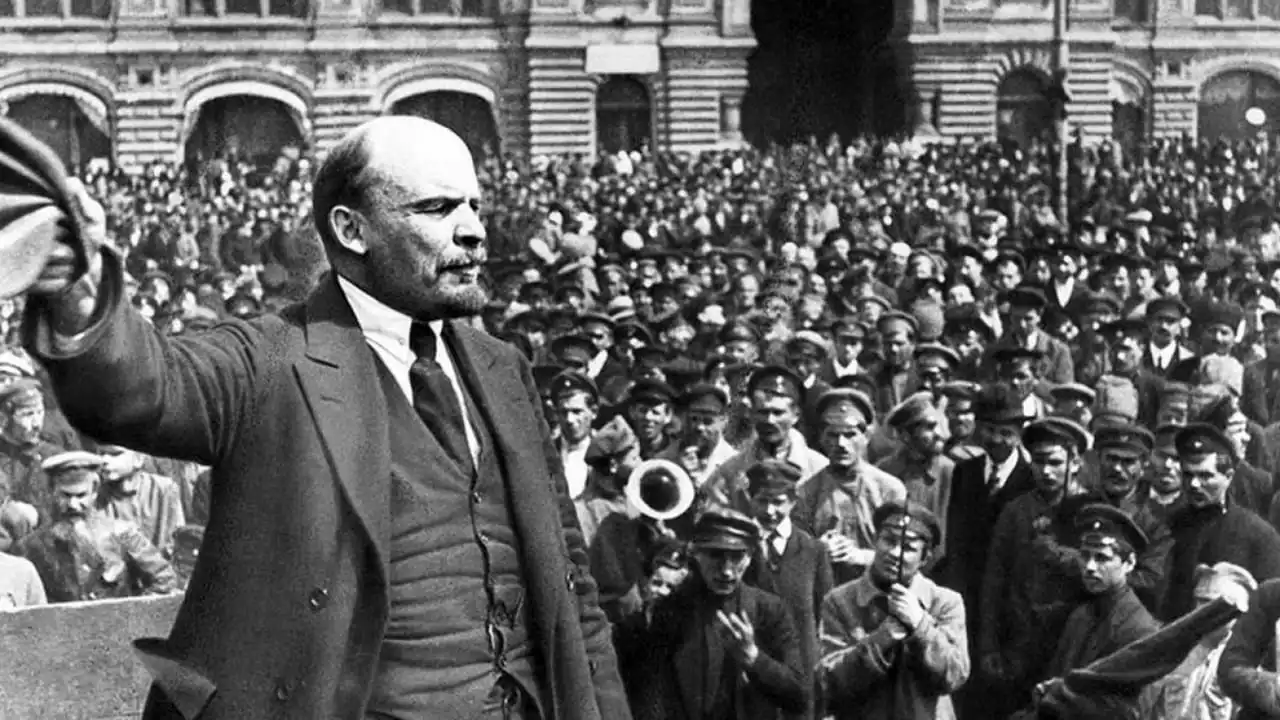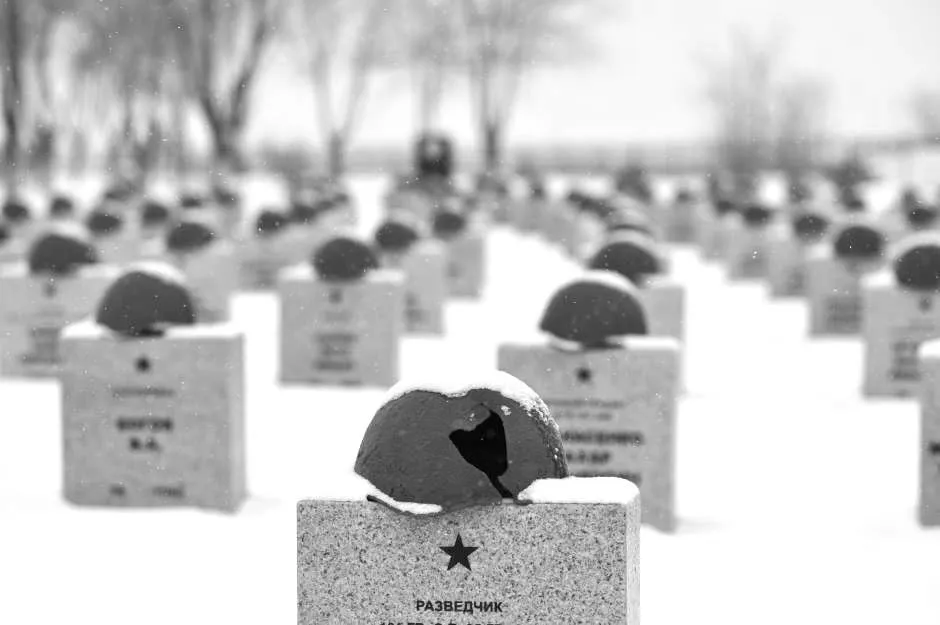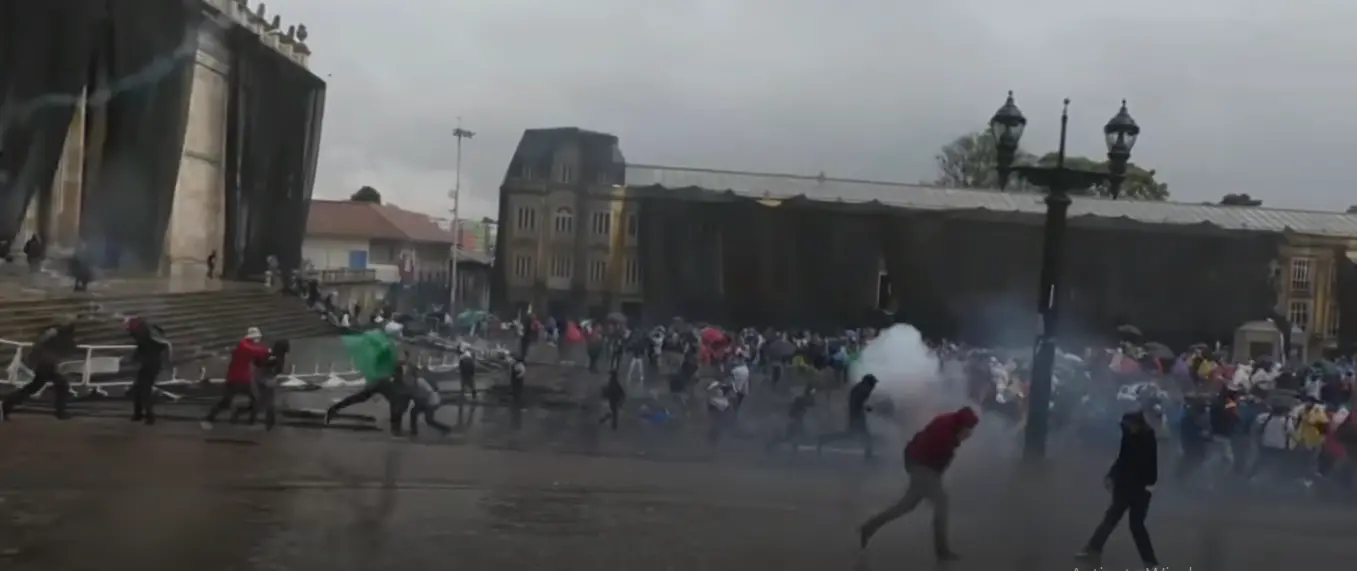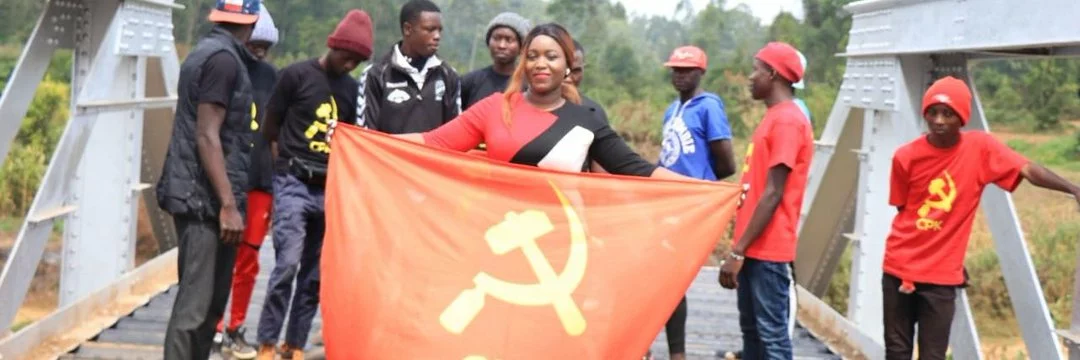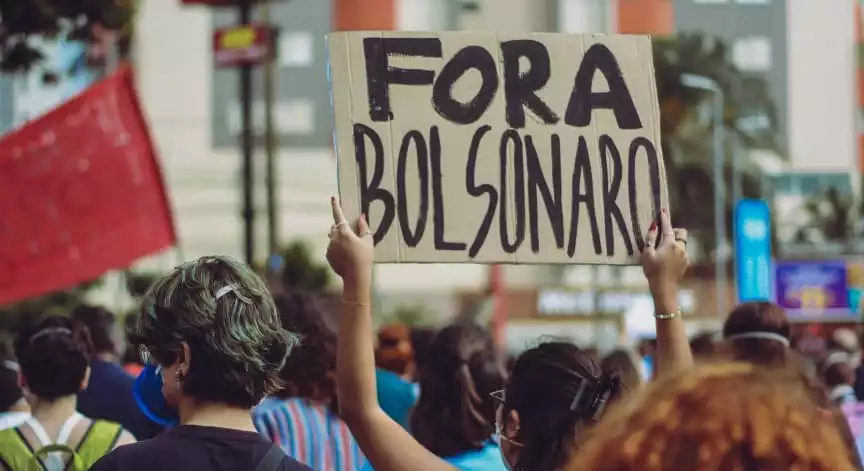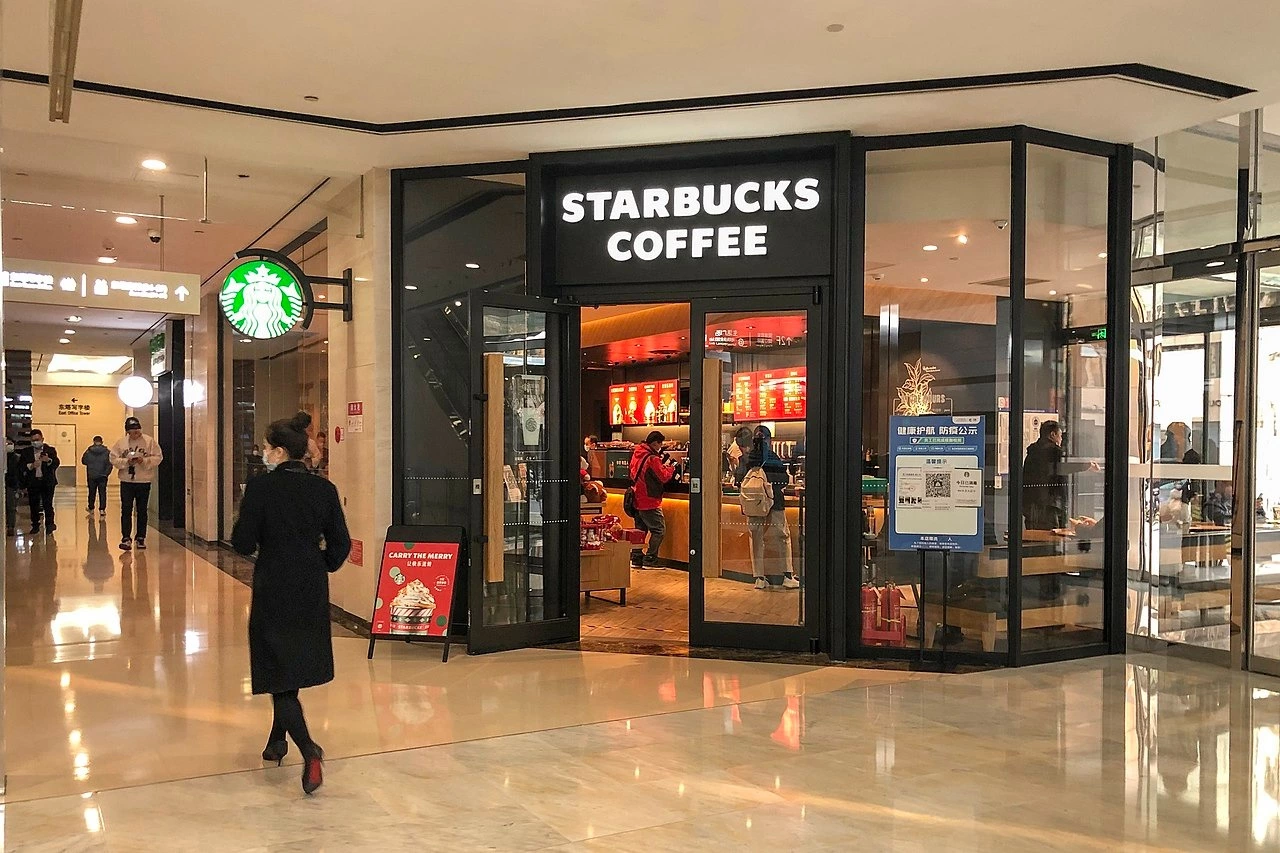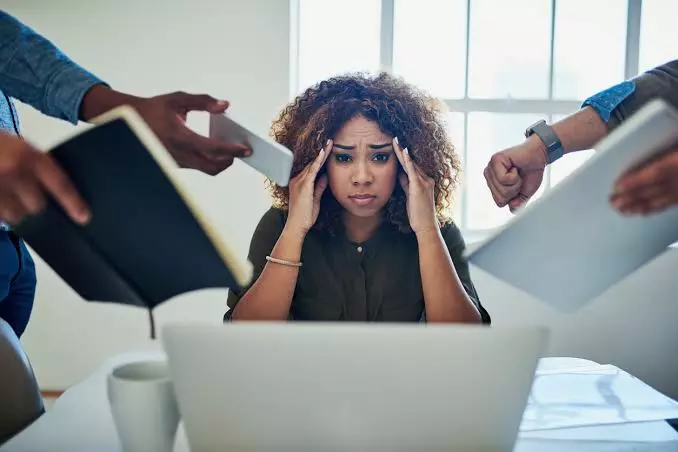Every Ukrainian government after the collapse of the Soviet Union has accommodated neo-Nazi ideology to wash away nostalgia for the Soviet welfare state from the collective memory of its people, noted Ukrainian Communist organizer Dmitri Kovalevich in an interview with Orinoco Tribune.
“Nationalist and neo-Nazi groups were systematically made mainstream by all Ukrainian governments after the collapse of the Soviet Union; they were needed to reverse the mass nostalgia for the late-Soviet welfare state with free healthcare, education, free apartments for workers, free trips to resorts and vacation homes with very low prices for food, gas, electricity and public transport,” Kovalevich explained in response to a question on the presence of Nazi ideology in Ukraine.
According to him, the Zelensky administration continued that trend, but took it further and “made every concession to neo-Nazi militants because they themselves feared the monster they had armed to keep them in power… Now people get prison sentences for even wearing a Soviet badge, listening to Communist songs, or wearing a T-shirt with a hammer and sickle. Most of the communists left for the rebellious republics of Donbass (where their own communist party operates), some went to Russia, and some stayed to work underground in Ukraine,” like Kovalevich himself.
As to why Western media is trying to deny the impunity enjoyed by Ukrainian Nazis, Kovalevich commented, “For the West, the Ukrainian Nazis are now profitable because they are killing Russians… Before Euromaidan, Western media and human rights activists saw Ukrainian Nazis and even criticized them, but the criticism stopped as if on cue after Euromaidan; there were no less Nazis in Ukraine after that, but the Western MSM turned a blind eye.”
The Ukrainian analyst described a range of issues to Orinoco Tribune, including the 2014 coup, Ukrainian President Zelensky’s rise to fame, war crimes and human rights violations in Ukraine, the economic collapse of the country, and many others. The complete interview is presented below.
What was your experience of the 2014 coup? At that time there was news that Ukrainian communist organizations had been banned. Which were those organizations? Did the situation change after Zelensky’s election, or after the start of the Russian intervention?
The Communist organizations in Ukraine at that time were quite weak. The largest was the Communist Party of Ukraine, which had a parliamentary faction in 2014, but did not do any real work on the ground, publishing only boring reports. There was also a number of smaller communist groups. All of them opposed Euromaidan. Although some of them shared liberal ideas of Euro-integration, the Euromaidan was ruled by far-right militants, who did not tolerate anything leftist. The attacks on the monuments of Vladimir Lenin were a landmark of Euromaidan. Accordingly, opponents of Euromaidan began to gather under the Lenin monuments to fight back. Thus began the confrontation, which turned into a civil conflict, which then led to the Russian military operation in 2022 and now leads to a global conflict. But everything started under the Lenin monuments and because of the Lenin monuments, under which people from both sides died in the first days.
After the coup, militant nationalists carried out a series of pogroms on Communist Party offices. Soon afterwards, in 2014, communist and socialist organizations were banned (the Communist Party, the Socialist Party, the Progressive-Socialist Party, the Left Bloc, the Marxist organization Borotba, and the Workers’ Party of Ukraine). In other words, all left-wing parties and groups, including social-democratic parties, were banned. The point is that even if they were not pro-Russian, they were not anti-Russian enough or anti-Soviet enough, as the new authorities demanded.
Ukraine’s new authorities actually made every concession to neo-Nazi militants because they themselves feared the monster they had armed to keep them in power. However, nationalist and neo-Nazi groups were systematically made mainstream by all Ukrainian governments after the collapse of the Soviet Union; they were needed to reverse the mass nostalgia for the late-Soviet welfare state with free healthcare, education, free apartments for workers, free trips to resorts and vacation homes with very low prices for food, gas, electricity and public transport.
Now people get prison sentences for even wearing a Soviet badge, listening to Communist songs, or wearing a T-shirt with a hammer and sickle. Most of the communists left for the rebellious republics of Donbass (where their own communist party operates), some went to Russia, and some stayed to work underground in Ukraine.
Even recently, in March 2023, the Ukrainian security services reported the detention in western Ukraine, in the city of Lviv, of a cell of the illegal Communist Party of the Soviet Union, numbering 45 people. Judging by their description, they were mostly elderly people.
Leaked Documents Expose US-NATO Ukraine War Plans
The dominant view in mainstream media and political circles in the West is that Russia invaded Ukraine without any provocation. Anything that might have happened before March 24, 2022 has been wiped off the collective memory. What was happening in Ukraine before the Russian intervention? What is the opinion in Ukraine, why did Russia intervene?
The provocation began with the coup in February 2014, when Ukrainian President Viktor Yanukovich was overthrown. The reason was his (temporary) refusal to sign the Trade Association Agreement with the European Union. This was a free trade agreement. It is kind of like the NAFTA treaty in North America. The only difference is that its signing by Mexico once caused the Zapatista uprising, while the refusal to sign such a treaty by the former government of Ukraine caused a color revolution inspired by the United States and the EU. At that time (2013-2014), pro-American forces in Ukraine had no chance of winning elections, so they resorted to a coup. During this coup (Euromaidan) in Ukraine, an alliance of pro-American liberals with gangs of neo-Nazis and right-wing nationalists was established. The liberals created images of a so-called struggle for democracy for the Western media, while the latter were engaged in terror.
At least half of Ukraine did not accept the coup and refused to recognize the new government. There were uprisings in the southern and eastern parts of Ukraine. Ukraine’s army then also refused to obey the new authorities, so they released criminals from prisons and armed gangs of nationalists and neo-Nazis, forming something like the paramilitaries known in Latin America. In many regions, they succeeded in brutally suppressing resistance. They were not allowed on the Crimean peninsula because there is only one narrow road leading there. They could not break through only to Donbass, the mining region of Ukraine, where traditions of proletarian internationalism and pro-Soviet sentiment have always been strong. These regions declared their independence, and subsequently many opponents of the pro-American coup from other regions of Ukraine left there.
The new pro-American government carried out massive purges in the army, special services and police, recruited many paramilitary nationalists instead of the old cadres, and sent them to the rebellious mining regions in the spring of 2014. Thus began a civil war that lasted from 2014 until 2022. In 2014 and 2015, peace agreements (Minsk-1 and Minsk-2) were signed, which assumed that the rebellious regions would return to Ukraine, but retain their autonomy. However, our new Ukrainian government was unwilling to abide by them. Partly because the US needed a hotspot near Russia’s borders. Partly because the paramilitaries and right-wing nationalists, who gained control of the government after being integrated into the power structures, did not want this.
For all eight years the cities of Donbass have been subjected to artillery fire and systematic destruction. Now the Western media only show Ukrainian cities affected by Russian forces, but they have stubbornly failed to see the killing and destruction that has been taking place in Donbass for eight years in a row. On the eve of the start of the Russian special operation, the new Ukrainian president Zelensky (under pressure from the same radical right-wing nationalists) stated that he had no intention of implementing the Minsk agreements at all. Western politicians, including former German Chancellor Angela Merkel, also admitted that they signed the Minsk peace agreements only to postpone and rearm the Ukrainian army so that it could suppress the rebellious regions by force.
Such a scenario would imply a massacre in Donbass and millions of refugees in Russia, who for eight years have demanded that Moscow help them. It should be understood that Russia has the largest Ukrainian diaspora in the world (6 million) with its own strong lobby. Rejection of this would cause a political crisis in Russia, which is exactly what the US needed. In the West they see only the pro-Western part of the Ukrainian diaspora. Both diasporas speak as if on behalf of all of Ukraine, but one appeals to Russia and the other to the US and EU. And now one can find at least 25% of ethnic Ukrainians as part of the Russian troops. Just as there are battalions of Russian nationalists as part of the Ukrainian troops.
A certain role in Russia’s decision to launch a military operation in Ukraine was played by Zelensky’s statement at the Munich Security Conference in February 2022, where he emotionally told that Ukraine should reconsider giving up nuclear weapons and admitting the possibility of producing them.
Would you briefly describe Zelensky’s political trajectory? As far as we understand, he got elected on the promise of bringing peace to the Donbass region, yet he ended up escalating the situation. Why did he abandon his presidential campaign promises?
During the same time, there has been a complete transformation of his image in Western media: from the president of Europe’s most corrupt country, he has been turned into a hero of democracy. Has there been any similar transformation in Ukrainian media too?
There is nothing surprising about the hypocrisy of the Western media. I remember that before Euromaidan they criticized Ukrainian fascism and nationalism, which they saw as a far-right threat to Europe. Since the beginning of Euromaidan, I noticed that in all the Western media they were silent about it all of a sudden, acting as if on command, even though they were composed of different Western institutions and medias.
As for Zelensky’s transformation, I would remind you that in 2014, already after the civil conflict in Donbass began, Petro Poroshenko was elected president because he promised to end the conflict in two weeks. In 2019, an overwhelming majority of Ukrainians voted for the Russian-speaking comic actor; because of his image presented in the movies. His movie character opposed the dictates of the IMF and Western bankers, but it was only an image for the movies, far from his real views. He was voted for mainly by people in the southeastern regions of Ukraine, where the insurgency against Euromaidan began in 2014. This trick was mastered by Ukrainian oligarchs of the 1990s—they financed several candidates at once—one with pro-Russian rhetoric, another with pro-Western rhetoric, one nationalist, another calling himself as a socialist, but whoever came to power, the same forces remained the winners. Western experts call it predictable democracy.
I don’t know for sure whether Zelensky changed his personal convictions, and whether he had any at all. His Servant of the People party even recruited people through an internet ad: they did not have to be left-wing or right-wing, but they had to know PR technologies and mass media. Those who later became elected deputies were sent to holiday resorts to be trained by Western instructors. Some already elected deputies from his party who were expressing their opinions were quickly ousted and fired. I would say that Zelensky and his party are not a political project, but they are simply the regional office of a Western corporation with its managers.
Ukrainian experts highlight several turning points after his election. Some say that changes in Zelensky’s politics occurred after his visit to the office of the British MI6, where he personally met the MI6 head Richard Moore in the fall of 2019. Others cite his conflict with far-right militants shelling the Donbass. In the fall of 2019, Zelensky tried to bring them under control, after which the militant nationalists threatened to overthrow him and hang him. Right-wing sector leaders then openly refused to obey him as the commander-in-chief of the Ukrainian army. After that, Zelensky made concessions to them in everything, including refusing to comply with the Minsk peace agreements, although they envisioned the reintegration of Donbass into Ukraine, but with its own rights and autonomy.
In general, it can be summarized that a comic actor remains an actor, even when playing the president of a country. The real power is held by nationalist fighters and Western instructors. The president and parliament must only voice their instructions as talking heads.
What is the current situation in Ukraine? How are people’s financial condition and daily life? We hear nothing about the daily life of the people of Ukraine, for example, if food, fuel, and medical supplies are available, if schools and businesses are going on normally. Could you describe how the common people are living in wartime? Also, how much damage have the Russian airstrikes caused?
Even before 2022, Ukraine went through a stage of deindustrialization, when most of the country’s enterprises were shut down. This was one of the consequences of the trade association with the European Union, which caused the Euromaidan in 2014. Millions of Ukrainians were already working on construction sites in Russia or in the fields in Poland, as nurses in Italy, or in shopping malls in Turkey. By that time, a whole class of people had formed in Ukraine, living on their relatives’ salaries, which they transferred to them from abroad.
As a consequence, Ukraine is experiencing a shortage of workers, even to maintain infrastructure. A Ukrainian worker receives an average of $200-250 per month, but this is usually enough for a couple of weeks. The fact is that in 2014 Ukraine began to take mass loans from the IMF, the World Bank and Western countries. The condition for the loans was a sharp increase in tariffs for gas, light, and gasoline, so that the debtor could pay back later. Since 2014, the prices of heating, water, transport, and electricity in Ukraine have increased five to six times, while in Donbass they remained almost at the same level. For this reason, Ukrainian workers prefer to work abroad and spend their earnings at home.

However, since February 2022, Ukrainian men have been banned from traveling abroad. They are enlisted en masse to the army and often by force. Every day dozens of them illegally flee the country to avoid going to the front, and often die on the way. Since 2022, Ukrainian men cannot get a job at home, nor a certificate from the local administration or unemployment benefits without permission from the military recruitment office, so many of them do not leave home at all, where the risk of being captured and ending up in a trench at the front in a week is high.
The only sphere in Ukraine where salaries are paid normally is the army. Its budget is almost entirely provided by Western countries (mainly the United States). In fact, the Ukrainian army has become a private US military company. For women, teenagers and the elderly, the cyber-army is offered, which is also funded by the US and British structures. They are offered a certain amount of money to constantly talk about so-called evil Russians, and are instructed to disseminate certain messages repeating government propaganda on social networks. This can be easily recognized by the mass of typical messages and posts, which often do not change a word and are written according to a template.
In general, life in Ukraine (with the exception of the front line in Donbass) goes on as usual. Stores, pharmacies, nightclubs, and public transportation are working. However, food and other goods in Ukraine have become more expensive than in Europe, from where they are imported with a surcharge.
Russian airstrikes did virtually no damage (except in front-line cities). People usually do not respond to air-raid alarms and go about their business. The Russian army is hitting infrastructure, military facilities, and military equipment repair plants. One missile costs several millions, so it makes no sense to spend it on hitting civilians or residences.
Some residential buildings in Kiev and other cities were hit by Ukrainian air defense systems. The fact is that, on the advice of British instructors, air defense systems are deliberately placed in residential areas, in cities where they are difficult to detect. It is from there that they shoot at Russian missiles flying at military facilities. If hit, both missiles fall on residential areas, destroying houses and killing random civilians. This is one manifestation of the human shield tactic. In Ukraine this tactic is even justified by the fact that in the field the Ukrainian army has no chance to hold out.
What is the situation of the news media in Ukraine? Where do people get their news? Are foreign media allowed? What are they saying about the Nord Stream explosions, Ukraine’s chances, and other matters related to the war?
After Euromaidan in Ukraine, Russian social networks and media outlets were first banned and TV channels were blocked. From 2014 to 2022, there were some TV channels in Ukraine that were critical of the government, but they were regularly attacked by right-wing gangs. Since 2022 they have been closed down as well. A media law passed last year forbids even speaking positively about Russians or the Soviet Union. Even a report about the birth of a tiger cub in the Moscow Zoo could be interpreted as treason.
Since last year, President Zelensky has obliged all remaining television channels to broadcast the government’s “united telemarathon,” which presents only the official point of view. As a result, the popularity of television has fallen threefold, but the role of social media, especially Telegram channels, has risen by the same factor.
Western media are allowed in Ukraine, but there are few Ukrainians who know and understand Western languages.
The official Ukrainian media only talk about Ukraine’s prospects and the imminence of our victory. Even when the Ukrainian military tells Western journalists about the difficult situation at the front, they are demoted and deprived of their salaries because of it.
On the Nord Stream 2: the Ukrainian media say only that the Russians did it themselves (destroyed the pipeline). However, the Ukrainian media blames the Russians for everything. If there is a report about protests in France or in the US, the Ukrainian media say that the Russians arranged it. If they talk about global warming, they reduce it to Russia’s fault for warming. If it is a weather forecast, they say that the rain is coming from Russia, which is evil, and so on.
Ukraine’s information policy is determined in Great Britain, its economic policy is determined in the USA (even the servers of the Ukrainian National Bank are in the USA). The level of tariffs and prices is determined by the IMF. The army and police are financed by NATO countries.
In one of your monthly updates for New Cold War, you mentioned some questionable recruitment practices carried out by the Ukrainian armed forces. What are those practices, and how have they impacted society and Zelensky’s approval ratings?
For a year now, Ukrainian men have not been allowed to go abroad. Military summonses are issued at checkpoints at all exits from cities. Ukraine has a passport regime; all Ukrainians must carry a passport with them at all times. Since last summer, military registration and enlistment officers have been rounding up men aged 18 to 60 at markets, stores and shopping malls. Military summonses are also issued to those caught breaking the curfew or drunk driving, for example. As a result, a network of telegram channels has sprung up in Ukraine that report on ambushes by military commissars. As a rule, a woman is sent there on reconnaissance, who then tells everyone if the pass is free. In March, the security service arrested several dozen administrators of these channels, usually teenagers.
To stay out of the trenches, thousands of Ukrainian men are fleeing abroad (some die on the way in rivers or mountains). Ukrainian authorities have now agreed that those men who manage to flee to EU countries will be deported back to serve in the Ukrainian army.
The Ukrainian authorities admit that most Ukrainians are not motivated to fight, but they must because it is their duty. In some cases, they even tried to conscript disabled persons.
There is also a class element to this military conscription. The conscription gave rise to a number of corrupt schemes. In order to get a deferment of the draft (six months of delay), it is necessary to pay five to six thousand dollars. To get a fake certificate of ineligibility, six to eight thousand dollars. To smuggle a soldier abroad, the services of a smuggler cost about 10,000 dollars without any guarantee. For a soldier who has already been drafted into the army, to stay in the rear and not get into the trenches is also worth about 10,000 dollars. So the drafted servicemen are mostly men from the countryside, yesterday’s tractor drivers and farmers. Those who have money pay to escape abroad or continue to go to nightclubs in Ukraine.
Those men who work for Western foundations and non-governmental organizations are also officially exempt from military conscription in Ukraine.
Human rights are a contentious issue in all conflict situations, and Ukraine is no exception. Mainstream media has bombarded us with Russian atrocities in Ukraine: civilian deaths, torture, violence against women, infrastructure destruction. On the other hand, there has been almost no mention of any possible human rights violation committed by the Ukrainian forces. Have there been violations on the part of Ukraine? What was the worst such violation in your opinion? Could you speak about how the Ukrainian army has treated the people of the regions from which the Russian military withdrew, like Kharkov and parts of Kherson province?
Most of the population of Kherson, for example, evacuated with the Russian army last year. There were at least two days between the retreat of the Russian army and the entry of the Ukrainian army. About 20% of the population remained in Kherson. However, there were mass sweeps going on among them as well. People in the territories regained by Kiev are charged daily with collaborationism, which even includes working in a medical facility and accepting food aid for pensioners from the Russian side. Residents of these regions are scrutinized by the security services because they suspect that residents of southeastern Ukraine sympathize with the Russians and surrender to them the location of the Ukrainian military. Often it is the accuracy of Russian airstrikes at the place and time when the Ukrainian military gathers there that leads to a total screening of all residents.
Just the other day, the head of the UN Office of the High Commissioner for Human Rights (OHCHR), Volker Türk, stated that the Ukrainian armed forces had tortured about half of the Russian prisoners of war. The UN also stated that the Ukrainian authorities did not institute criminal proceedings against their military personnel who took part in the execution of Russian POWs. There was no response even in cases when facts of war crimes were documented.
At the same time, the Ukrainian side stakes on the maximum media exposure of the conflict, since the loss of interest in it in Western society threatens to cut off arms and money to Kiev. At times, trying to create a media picture, Ukrainian officials cross the boundaries of reasonableness by portraying Russians as subhuman. The Ukrainian media refers to the Russians (and Ukrainians who sympathize with them) as “subhuman,” “Asian horde,” etc. Last year, the Ukrainian ombudsperson Lyudmila Denisova was dismissed. The reason for her dismissal was her unbelievable stories about rapes by Russian soldiers that she had told the Western media, but could provide no proof. But even now, the Ukrainian authorities claim that the Russians are allegedly giving their soldiers Viagra to rape not only women, but also animals. The same Viagra fake stories were promoted by the Western media when Qaddafi was overthrown in Libya.
Now the big question: are there Nazis in Ukraine? Media has tried to tell us that it is all Russian propaganda. There are some other media that try to establish the idea that there are Nazis but they are few in number and do not control anything. What is the reality?
The reality is that even the Western media show Ukrainian soldiers with Nazi symbols in their reports. Since the Maidan coup, Nazi militants have effectively controlled the government and prevented it from reaching a peace agreement with the Donbass regions. In addition, in Ukraine after Euromaidan the cult of OUN-UPA—Ukrainian allies of Hitler, responsible for the Holocaust and the extermination of the Polish population—has been officially accepted. Even the official salute in the Ukrainian Armed Forces is the salute of the Nazi collaborators. On the tanks that the West hands over to the AFU they paint the cross that was on Nazi tanks during World War II. That is why one of Russia’s goals is denazification, which also did not come from an empty pen. For the West, the Ukrainian Nazis are now profitable because they are killing Russians. At one time they also benefited from radical Islamists while they were fighting against the Soviet Union in Afghanistan. Before Euromaidan, Western media and human rights activists saw Ukrainian Nazis and even criticized them, but the criticism stopped as if on cue after Euromaidan; there were no less Nazis in Ukraine after that, but the Western MSM turned a blind eye.
How long do you think the war will continue? The government of Poland recently announced that it is considering sending troops into Ukraine, while the UK announced that it will provide depleted uranium shells to the Ukrainian army. How do you think all this may affect the war?
It seems to me that, unfortunately, the war will go on for a long time. Russia is systematically knocking out Western weapons, but new ones are being supplied daily. When Ukraine runs out of manpower to make up for losses at the front, the West will be looking for mercenaries all over the world. Already American comrades write that poor Americans, who are on unemployment benefits, are being agitated to join the so-called International Legion to defend Ukraine. It seems to me that the war will be fought to the attrition of one side, and at some point, it may come to a nuclear conflict.
Do you think there would be a peace proposal to end this conflict?
Now there are many calls for peace, but the positions of the sides are opposite. The US speaks for Ukraine; US Secretary of State Anthony Blinken openly states that Ukraine must first win on the battlefield, and then there can be peace talks. The US wages the war with Ukraine as a tool, so it is not up to Kiev to decide whether to start peace talks. However, once the US gives up this “tool,” there will be a chance for a settlement.
The West has provided Ukraine with a lot of financial aid, and has announced more. Are all those aid packages really aid, or are they loans? The IMF also recently announced an unprecedented loan for Ukraine, the only country at war to receive an IMF package in history. How do the Ukrainian authorities plan to repay all these loans?
Ukraine does receive billions, but mostly in debt. Now the total debts exceed the country’s GDP. I believe these debts will never be paid. Ukraine believes that these debts should be paid by Russia, in the form of reparations. At the same time, most of the US and British aid does not leave these countries; it goes to rearm the Western armies, to produce shells and weapons for their armies (replenishing supplies to Kiev), although it is formally allocated as aid to Ukraine. On the other hand, military supplies and money allocated by the West are difficult to control during martial law, as all these issues are classified. Under secrecy, it is possible to withdraw funds from the budgets of Western countries for many years, which either will not reach Ukraine or will burn up in the fire of war. The longer such aid to Ukraine lasts, the more billions will be siphoned from the budget into private hands.
This article was originally published in Orinoco Tribune
Editor's Note:
The views and informations expressed in the article are solely those of the author and may or may not reflect the views of The International. We believe in providing a platform for a range of viewpoints from the left.
